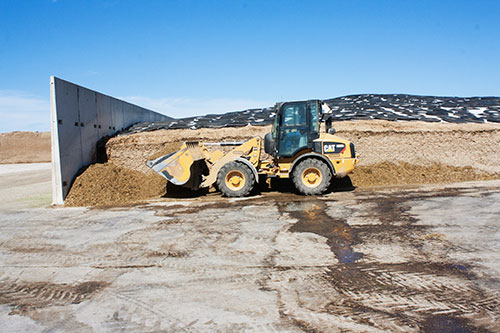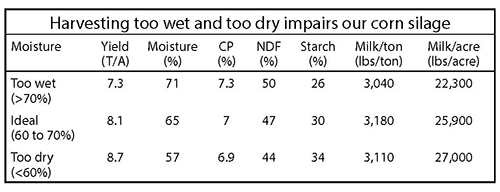
by Amanda Smith, Associate Editor
"Too wet, too dry and just right," Goldilocks would say when evaluating corn silage, with just right being our goal!
Growing high-yielding, high-quality corn is only half the battle when it comes to silage production. The other half is appropriately timing harvest so that forage ferments and is preserved for feedout later on.
"One of the greatest struggles we have is the unevenness of corn as we go into the harvest season," noted Joe Lauer, University of Wisconsin.
In the planting season, there are two dates that should be tracked: planting date and silking. Approximately 42 to 47 days after silking, kernels will reach 50 percent kernel milk. At this stage, milk per acre is best, but yield will take a back seat as moisture is the primary concern.
On average, forage moisture is lost at a rate of 0.5 percent per day, leaving a 20-day time period as forage moisture moves from 70 to 60 percent. When forage is harvested too wet, we often see reduced yields, souring, seeping and low intakes by cows. Harvesting too dry may improve yields, but can cause mold to develop, while impairing digestibility, protein, and vitamin A and E.
Using data from individual hybrids grown at various locations in the University of Wisconsin silage evaluation program, Lauer described what happens to corn silage when harvest timing is off at the Midwest Forage Association's annual meeting (table). Observations for 109 hybrids were categorized according to harvest moisture.

In this data set, forage yield rose 1.4 tons per acre as the crop matured. Crude protein declined from 7.3 to 6.9 percent, while neutral detergent fiber decreased from 50 to 44 percent. The most dramatic changes were seen with starch content, which rose from 26 to 34 percent as the crop matured.
"If you are going to err, it is probably better to err on the more mature side of crop development. However, keep in mind that there are significant trade-offs, including a significant risk of mold development," concluded Lauer.








